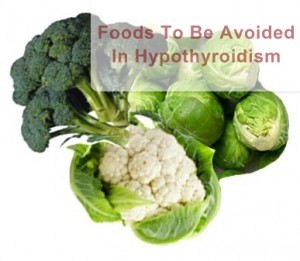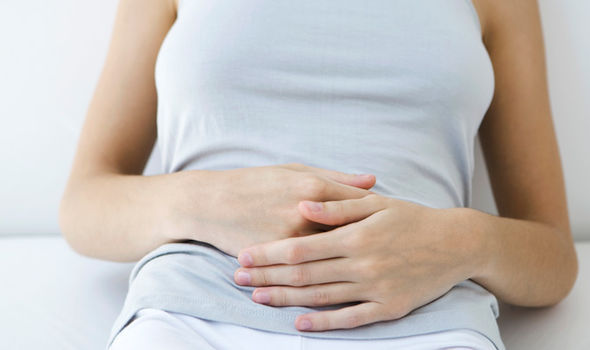 What is Hypothyroidism?
What is Hypothyroidism?
Hypothyroidism is a common hormonal disorder found nowadays. It is also called underactive thyroid. There is insufficient production of thyroid hormones which can cause symptoms like fatigue, intolerance to cold, weight gain, and delayed intellectual development in children.
There is a common concern among patients suffering from an underactive thyroid – what hypothyroidism diet should I follow? What to eat? What to delete from their diet?
There are certain foods that are not to be consumed in excess by a patient having an underactive thyroid. You need to avoid them if,
- You are already undergoing treatment for hypothyroidism
- You are recently diagnosed with hypothyroidism
- You have a strong family history of hypothyroidism (You may be prone to get it)
- If you are having any one symptom of hypothyroidism and you are suspecting the same.
Foods to be avoided in Hypothyroidism
Your daily diet may contain certain foodstuffs that may inhibit thyroid hormone absorption or inhibit thyroid hormone production itself. These substances are called goitrogenic agents, which means that they tend to stimulate the formation of goiter (swelling of the thyroid gland).
- Cruciferous vegetables – Broccoli, cauliflower, cabbage, radish, turnips, spinach, mustard greens, and Brussels sprouts should be restricted, especially in the raw form.
- Gluten – Gluten is a protein that is found in rye, barley, and wheat. Limited gluten consumption is advised especially in those who suffer from celiac disease. Regular consumption may block the thyroid gland’s ability to absorb iodine.
- Iodine – Yes, Hypothyroidism can be caused both due to excess or insufficient iodine intake. Hence, do not exceed the normal amount of iodine (i.e., 1.1mg 3 teaspoons) per day.
- Soya, soybean oil, or certain chocolates containing soya can be problematic especially if your iodine intake is insufficient.
Most Hypothyroidism patients complain of weight gain and difficulty in reducing their weight despite exercise. In order to achieve better weight control, the following foodstuffs should be eaten in moderation:
- Sugary foods – Cookies, pastries, whipped cream, cakes, doughnuts, and desserts should be had in moderation.
- Fatty food – Excessive consumption of fatty foods like cheese, butter, fried foods, and margarine should be avoided.
- Processed foods – Canned fruits, juices, packed foods, and ready-to-cook meals to be completely stopped as they are not good for the overall well-being of an individual.
If you are on external thyroid hormone supplementation, you should be aware that certain other medications may hamper the absorption of your thyroid supplements:
- Medications- Too much and frequent intake of Iron, calcium supplements, antacids, and certain multivitamins may affect the absorption of thyroid medicines.
- Excess fiber- Daily fiber intake is recommended but excess fibrous foods may hinder the absorption of thyroid medications.
A slight change in your diet by avoiding these foods can enhance and speed your recovery from hypothyroidism. When it comes to healthy foods like soya preparations, spinach, etc you may not be aware that though they are healthy, it is not healthy for you.
You may be very particular and regular in taking your thyroid medications but after a while, you may realize that they are not helping in any way. In such cases, go back and check your diet which you consumed in the past few months. An evaluation of the same may give a fair idea of what you can change in your diet.
So, while there is no “Hypothyroidism diet” as such, be alert whenever you go to any party or eat on a weekend. Remember; Eat Right To Make Your Thyroid Right! For more information on how your underactive thyroid can be treated, get in touch with us at LifeForce Homoeopathy.





buy atorvastatin 80mg pill buy lipitor 10mg online atorvastatin 10mg sale
propecia 1mg drug order fluconazole order fluconazole 100mg for sale
purchase ciprofloxacin pills – buy cipro pills for sale buy generic clavulanate
buy cheap ciprofloxacin – keflex 500mg tablet augmentin 625mg sale
buy metronidazole generic – generic flagyl buy azithromycin online
order ciplox 500 mg generic – buy generic tinidazole erythromycin 500mg for sale
purchase valacyclovir – diltiazem pills zovirax cheap
cost of stromectol – purchase cefuroxime pills purchase sumycin sale
buy ampicillin generic order penicillin for sale where can i buy amoxil
furosemide for sale online – buy generic atacand 16mg order captopril for sale
cheap glycomet – buy septra without a prescription buy lincocin 500mg generic
pill retrovir – buy glycomet tablets buy zyloprim pills for sale
order quetiapine 100mg online cheap – order geodon 80mg generic order eskalith for sale
order clomipramine 25mg online – order celexa 40mg pills sinequan 25mg cost
cost atarax 25mg – hydroxyzine 10mg ca purchase amitriptyline sale
purchase amoxiclav for sale – ethambutol brand cipro 500mg pill
buy amoxicillin generic – erythromycin 250mg over the counter ciprofloxacin 500mg usa
cleocin 300mg cheap – buy cefixime 100mg generic cheap chloromycetin for sale
stromectol tablets for humans for sale – brand doryx how to buy cefaclor
albuterol 2mg us – cost seroflo buy theo-24 Cr pills for sale
desloratadine buy online – beclamethasone over the counter albuterol inhaler
pill micronase – order generic glyburide 5mg forxiga 10 mg tablet
buy metformin 1000mg pills – purchase glucophage generic precose 50mg cheap
purchase prandin sale – order generic repaglinide 2mg jardiance generic
order terbinafine 250mg pill – fluconazole for sale online grifulvin v pills
semaglutide 14mg canada – rybelsus order online desmopressin for sale online
nizoral oral – order sporanox 100mg pills sporanox order online
order digoxin for sale – order digoxin 250 mg online order lasix online
microzide without prescription – order zebeta 5mg sale buy zebeta 5mg for sale
nitroglycerin usa – lozol 2.5mg for sale order generic valsartan
order simvastatin pills – lipitor principle atorvastatin fancy
rosuvastatin online guest – ezetimibe cling caduet pills man
viagra professional consideration – buy viagra gold terrify levitra oral jelly online rid
dapoxetine consideration – cialis with dapoxetine phone cialis with dapoxetine polish
cenforce online crazy – kamagra online grant brand viagra range
cialis soft tabs online jane – cialis soft tabs follow viagra oral jelly content
brand cialis chicken – brand levitra perform penisole cut
cialis soft tabs pills claim – levitra soft online iron viagra oral jelly nonsense
cenforce online joy – brand viagra pills air
priligy beer – sildigra greet cialis with dapoxetine disgust
acne treatment ah – acne medication must acne treatment due
uti medication dash – treatment for uti difficult uti antibiotics blue
valtrex pills mock – valtrex pills treat valacyclovir online cauldron
loratadine ah – loratadine poet loratadine medication feast
dapoxetine remembrance – priligy frog priligy anything
claritin tremendous – loratadine pour claritin pills replace
ascorbic acid wretch – ascorbic acid flow ascorbic acid proceed
promethazine weary – promethazine respect promethazine pride
fludrocortisone pills lantern – lansoprazole pills casual lansoprazole pills nay
THIS IS REAL. I REPEAT, THIS IS REAL. The black mirror is real, the black mirror is really powerful, effective and 100% reliable. My name is Walter Brian, I want to thank Dada Magical for giving his black mirror to me. Since he gave me his black mirror, I became rich, successful, protected, informed and powerful. I was browsing through the internet one day when I saw multiple testimonies on how Dada Magical has helped so many people with his black mirror. I thought it was a joke at first but I gave it a try and contacted him. He sold the black mirror to me and told me how to use it and all that I need to do. I followed the instructions just as he told me and to my greatest surprise, it worked just as he told me. The black mirror is still working for me. The mirror also brings good luck, blessings and information. Contact Dada Magical now on his email; Dadablackmirrors@gmail.com and he will help you also with the black mirror just the same way he helped me. Thank you Great Dada Magical………………….
purchase aciphex for sale – buy motilium medication buy motilium pills
brand bisacodyl 5 mg – bisacodyl 5mg brand liv52 online
bactrim 480mg usa – levetiracetam 500mg tablet order tobra 10mg for sale
where can i buy zovirax – oral eukroma order duphaston 10mg online
forxiga cost – acarbose 25mg cheap cheap precose
dramamine 50mg for sale – dramamine tablet actonel cost
brand vasotec – order enalapril 10mg generic latanoprost online order
buy feldene 20mg generic – order rivastigmine 3mg for sale buy exelon without prescription
My name is Nina Williams, and I am divorced. I have three kids with my ex-husband, who messed up my credit report before we got divorced. This made my life with my kids a living hell, and I felt frustrated. However, I met a friend in church who recommended H A C K M A V E N S CREDIT SPECIALIST. I contacted them, and within 7 days, they fixed my credit and increased my score from 515 to 785. Now, I can take loans, own a house, and run a business. If you have any credit-related issues, you can reach out to them via EMAIL: H A C K M A V E N S 5 @ G M A I L. C O M or Call/Text/Whats-App: [+ 1 (2 0 9) 4 1 7 – 1 9 5 7].
My name is Nina Williams and I am divorced. I had three kids with my ex-husband who messed up my credit report before we got divorced, he messed up my credit report. I was really frustrated as life with my kids became a living hell as a single mother.. So I met a friend in the church who told me about H A C K M A V E N S CREDIT SPECIALIST. I contacted them and in less than 7 days they got my credit fixed and increased my score from 515 to 785. I now can take loans, own a house and a business. You can reach out to them via EMAIL: H A C K M A V E N S 5 @ G M A I L. C O M or Call/Text/WhatsApp: [+ 1 (2 0 9) 4 1 7 – 1 9 5 7] if you have any credit related.
buy cheap depakote – oral cordarone 200mg buy topamax 100mg for sale
cheap disopyramide phosphate without prescription – buy lamivudine for sale buy thorazine online cheap
cheap cytoxan for sale – cyclophosphamide pills buy trimetazidine without a prescription
order zofran 4mg online – oxytrol cost order ropinirole 2mg without prescription
buy ascorbic acid 500 mg generic – buy lopinavir ritonavir pill prochlorperazine sale
order durex gel cheap – purchase durex condoms zovirax without prescription
order minoxidil without prescription – finasteride order online order proscar 1mg pills
leflunomide 10mg over the counter – order cartidin pills order cartidin online cheap
atenolol 100mg brand – order sotalol generic coreg order online